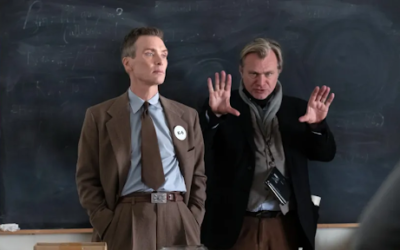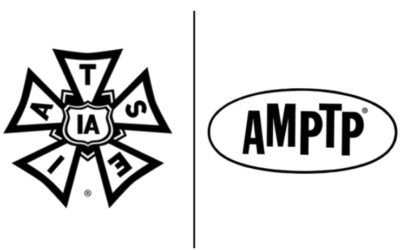Source: Facebook
Sunday, June 20th will mark the 111st celebration of the holiday known throughout the nation as Father’s Day. From its first commemoration back in the year 1910, Father’s Day has come each and every third Sunday of June and allowed people all over the country to pay tribute to the fathers and father figures that have raised them. Although nothing can compare to the real-life people that have taken up such a mantle (either by biological, adoptive, or other means), there’s still something to appreciate about the paternal characters who have graced the silver screen and even served as a major inspiration for countless individuals. Throughout the decades, film has given us a wide variety of characters that, even if they are not technically fathers themselves, have nonetheless demonstrated the behaviors and values that many would want to find in the ideal father figure. Though there are far too many admirable father figures in cinema to count, we’ve nonetheless found a way to determine which are the ones that we enjoy most. Without further ado, here are some of our favorite fathers/father figures of film:
Jay Jay Daniels – Emu Runner (2018): being a father is rarely an easy task, but in the case of Jay Jay, the patriarch of the Daniels family, it’s certainly much more difficult than most fathers are used to. Having to contend with both the passing of his wife and his status as an indigenous Ngemba person living in modern-day Australia, Jay Jay’s ability to raise his two daughters Gemma and Valerie is frequently put to the test, especially when social services and the local government begin to call his suitability as a parent into question. Though Jay Jay may not be a perfect dad, there’s never a doubt that he doesn’t truly love his family, and in no small part due to a fantastic performance from actor Wayne Blair, Jay Jay is able to effectively prove his worth as a realistic, but still respectable father.
Atticus Finch – To Kill a Mockingbird (1962): when a child refers to their parent by their first name rather than a more respectful alias such as “mother” or “dad”, one might be led to think that there is a lack of respect coming from the child. This could not be more false in the case of Atticus Finch; by permitting his young daughter Scout to call him “Atticus”, this Southern-born lawyer makes a dedicated effort to ensure that both he and his daughter see each other as equals. This allows the life lessons he teaches to his child to sink in with greater weight and meaning, whether he’s directly informing Scout about the importance of a good education or indirectly showing her why one must be willing to do the right thing even when the whole world seems to be working against you. Stern and steadfast, but still full of empathy whenever necessary, Atticus Finch continues to shine as one of cinema’s most admirable father figures.
Don Vito Corleone – The Godfather (1972): as the highest authority of New York City’s Italian mafia (appropriately referred to as “the family”), Don Corleone can easily be accused of a great number of crimes, but one thing that he can’t be accused of is being a comforting and supportive father. Although Vito holds his criminal organization at a high standard, it’s his true family that he personally considers that which he values most. This is most evident in his relationship with his son Michael, who had served as a Marine during World War II and was this close to making a name for himself that wasn’t brought down by the chains of “the family”. Michael being forced to become next in line for the title of Godfather following the murder of his older brother Sonny comes with much chagrin for Vito, proving just how proud he was of his son’s accomplishments and the life he could’ve had outside “the family”.
H.I. McDunnough – Raising Arizona (1987): at first glance, McDunnough (played by Nicolas Cage in one of his most noteworthy early roles) seems like the last person one would expect to be capable of being a halfway-decent parent. A former convict who gets involved in the kidnapping of a furniture magnate’s infant son, H.I. ‘s initial looks and actions make him out to be one of the last people who should ever take care of a very young child. However, as the film progresses, the time he spends with the baby Nathan Arizona, Jr. results in a change for the better in the increasingly protective H.I.. Whether he’s going to great lengths to get a bundle of diapers or defending the young child from the dangerous threat he calls the “warthog from hell”, H.I. proves that it’s never too late to become a good dad.
Guido Orefice – Life is Beautiful (1997): the Holocaust is a tragic period of time that no person should have ever lived through, especially when that person is far too young to understand what is going on. This is the dilemma Guido faces when he and his son Giosuè are forced into a concentration camp where death lurks around every corner. Not wanting to cause his son more distress than he can bear, Guido attempts to pass their situation off as a game, instructing him in the various ways to “play” in order to stay alive for as long as possible. Although the charade can only go on for so long, especially as Guido is executed near the end of the film, the lengths he goes to in order to keep Giosuè as upbeat and unaware as possible are nonetheless incredibly admirable, and though he cannot live to see it, Giosuè ultimately surviving the experience cements Guido’s success as a respectable father.
Mac MacGuff – Juno (2007): a good father does not necessarily have to be a conventional father, and one needs no further proof of that than J.K. Simmons’ surprisingly nonchalant character in this iconic 2000s comedy. When his daughter Juno tells him and his wife that she is pregnant, his reaction is full of significantly less outrage than one might expect from a father in a similar situation. Instead, he responds to the whole ordeal as casually and reasonably as possible, listening to what his daughter is telling him and keeping an open mind as to what Juno wants to do with this unexpected pregnancy. Mac’s reactions and behaviors may be out of the ordinary for a father whose teenage daughter has become pregnant, but considering just how well he handles the situation, perhaps more fathers should strive to be someone as understanding and supportive as he is.



